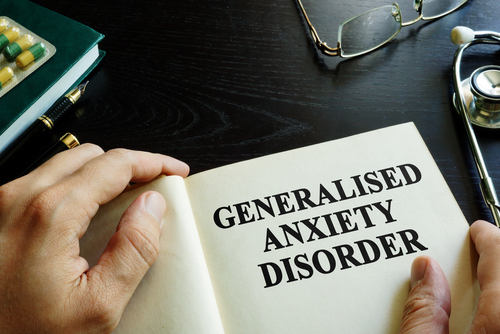
Generalized anxiety disorder (GAD) is listed in the Diagnostic and Statistical Manual of Mental Disorders, Fifth Edition (DSM-5) as a mental illness. The Mayo Clinic characterizes GAD as “severe ongoing anxiety that interferes with daily activities.” While experiencing bouts of anxiety is natural, experiencing persistent and debilitating anxiety may be indicative of GAD. The exact cause for developing generalized anxiety disorder remains unknown. Research has shown that it is likely due to a combination of contributing factors such as psychological, environmental, genetic, and developmental factors. When posed with the question: What is the best antidepressant for a GAD? There is no universal answer. The best antidepressant medication will depend on each person’s distinct needs.
Types of Medications for GAD
There are several types of antidepressant medications, each with respective risks, benefits, and appropriate uses, which include the following, provided by the Mayo Clinic:
- Selective serotonin reuptake inhibitors (SSRIs): work by slowing the reabsorption of serotonin (the neurotransmitter known to help with mood regulation and anxiety) in one’s brain. Common examples of SSRIs that may be used to treat GAD include, but are not limited to:
- Celexa (citalopram)
- Lexapro (escitalopram)
- Prozac (fluoxetine)
- Zoloft (sertraline)
- Selective norepinephrine reuptake inhibitors (SNRIs): work by reducing the reabsorption of serotonin and norepinephrine in one’s brain. They can be prescribed to treat anxiety, depression, and some chronic pain conditions. Common examples of SNRIs that may be used to treat GAD include:
- Cymbalta (duloxetine)
- Effexor XR (venlafaxine)
- Tricyclic antidepressants (TCAs): are prescribed less frequently as they are an older class of antidepressants that can cause more side effects than other options. Some examples of TCAs that may be used to treat GAD include:
- Tofranil (imipramine)
- Elavil (amitriptyline)
- Pamelor (nortriptyline)
- Benzodiazepines: a type of sedative that alleviates muscle tension and can reduce some of the physical symptoms of anxiety. They are often prescribed to help manage symptoms associated with short-term anxiety. Common examples of benzodiazepines that may be used to treat GAD include:
- Xanax (alprazolam)
- Valium (diazepam)
- Librium (chlordiazepoxide)
- Ativan (lorazepam)
There are a variety of treatment options for individuals diagnosed with generalized anxiety disorder. As is true with taking any type of medication there are associated risks. The specific risks will vary from person to person, as they will depend on several contributing factors (e.g., the individual’s health history, the presence of any additional mental health ailments, substance abuse issues, genetics, etc.). The Food and Drug Administration (FDA) requires antidepressant medications to clearly display a black box warning indicating the possibility of increased suicidal thoughts and behaviors when taken by some individuals under the age of 25. Antianxiety medication can be incredibly effective in reducing one’s symptoms associated with a generalized anxiety disorder when taken exactly as prescribed.
The information above is provided for the use of informational purposes only. The above content is not to be substituted for professional advice, diagnosis, or treatment, as in no way is it intended as an attempt to practice medicine, give specific medical advice, including, without limitation, advice concerning the topic of mental health. As such, please do not use any material provided above to disregard professional advice or delay seeking treatment.
